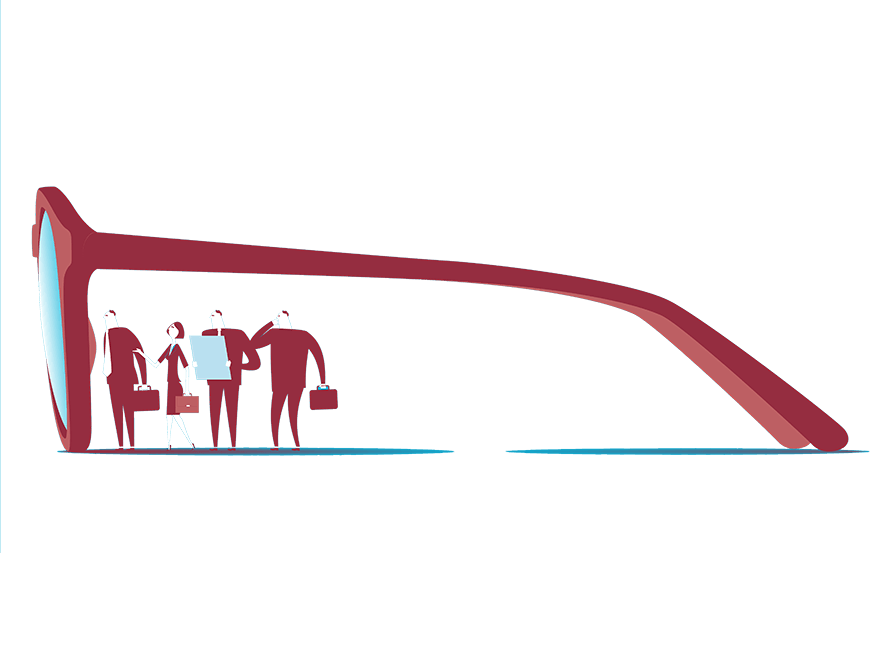TALKS, LECTURES, WORKSHOPS
Tear down the wall between lectures and workshops!

Here is one thing I learned over the years: There is never enough time for questions. If you go to a talk, you are very likely to have an interest in the topic, which means you have questions. Some of these may be answered by the talk, but many will not. This is why I invite audiences to become active participants as early as possible – asking questions right at the start, for example. I don’t mind interruptions, and am happy to continue the discussion outside its formal setting.
Eins habe ich im Lauf der Jahre gelernt: Die Zeit für Fragen ist immer zu kurz. Wer zu einem Vortrag geht, kommt mit Fragen, und nicht alle werden vom Vortragenden beantwortet. Deshalb lade ich meine Gäste ein, so früh wie möglich Fragen zu stellen. Sie dürfen aktiv teilnehmen, am liebsten gleich von Anfang an. Ich liebe Unterbrechungen. Und für weitere Gespräche nach dem offiziellen Teil bin ich so gut wie immer zu haben.
Professor Fricker’s explanations about a topic are always very clear and he goes to great lengths to be precise.
He pushed us to go a little further and challenge ourselves. It was very clear than he was passionate and knowledgeable about the subjects of which he spoke.
Als Jugendlicher als vollwertige Person mit einer Zukunft gesehen zu werden, ist furchtbar wichtig und toll – vielen Dank!
TOPICS / THEMEN
These are some of the topics I am happy to speak to. / Über die folgenden Themen spreche ich gern.
Anglo-European / Brexit
Britain has become a country divided by a common language. Brexiters and Remainers hardly talk to each other, and the visions they paint of the future of their country are radically different. This is evident in what they say, and in what they choose not to say. To make matters more complex still, the languages of both groups differ from the way many Germans talk about Europe. From individual words to grand narratives, a new, post-Brexit multilingualism is emerging. As Brexit unfolds, I explore why it will be increasingly difficult for Brits and Germans to talk to each other about who they are, and who they want to be. Colourful examples are placed in a framework informed by political theory as well as research into marketing and change management.
Fremdheit und Vertrauen
Wir leben in einer Zeit der gesellschaftlichen Spaltung. Die Einen haben Angst vor „den Fremden“ und fühlen sich „fremd im eigenen Land“, die Anderen fordern eine sachliche Diskussion und mehr Menschlichkeit. Vertrauen schwindet. Immer mehr Menschen fühlen sich handlungsunfähig. Wie kommt das? Was bedeuten eigentlich diese großen Begriffe „Fremdheit“ und „Vertrauen“? Mein Vortrag verbindet Alltagsbeobachtungen und Begriffsarbeit und versucht dabei, nicht immer gleich alles politisch zu sehen.
German Humour
Anyone attending will be sent straight away. We all know that Germans have no sense of humor. Just kidding. They do. And we will explore some of the ways in which it is expressed in films, stand-up, and cartoons. By looking at both the works and their reception we will gain a deeper insight into the interests of large audiences and of their particular sensitivities around class, race, region, and ideology. We find out how humour affirms or challenges social norms, and introduces new modes of expression and of coping with change.
Introduction to Translation / Tips and Tricks
Some people say there are things you can only say in one language and not in others, making the work of a translator both challenging and indispensible. But translation is also needed within a single ‘language’ – because our ability to misunderstand what our closest friends and allies have said is considerable. So how do you even start translating a text from one language to another? What are the main tools at a translator’s disposal? Is the source text more important than the reader of your translation? In this talk I explore these questions on any level you are interested in – from beginners to language connoisseurs!
How do I know whether others misunderstand me (and vice versa)?
Any time you enter new territory, you arrive as a guest. Whether you are a business or a traveller, you will need to engage with people who call this place home. Using the right terms and symbols is key, as is drawing on established practices of information exchange. But what should we look out for? What are the levels of comprehension at play when we are out of our comfort zone? This talk is full of examples, and includes some interactive elements.
COLLABORATORS, FUNDERS, VENUES






